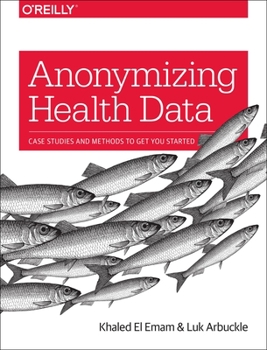Anonymizing Health Data: Case Studies and Methods to Get You Started
Select Format
Select Condition 
Book Overview
Updated as of August 2014, this practical book will demonstrate proven methods for anonymizing health data to help your organization share meaningful datasets, without exposing patient identity. Leading experts Khaled El Emam and Luk Arbuckle walk you through a risk-based methodology, using case studies from their efforts to de-identify hundreds of datasets.
Clinical data is valuable for research and other types of analytics, but making it anonymous without compromising data quality is tricky. This book demonstrates techniques for handling different data types, based on the authors' experiences with a maternal-child registry, inpatient discharge abstracts, health insurance claims, electronic medical record databases, and the World Trade Center disaster registry, among others. Understand different methods for working with cross-sectional and longitudinal datasets Assess the risk of adversaries who attempt to re-identify patients in anonymized datasets Reduce the size and complexity of massive datasets without losing key information or jeopardizing privacy Use methods to anonymize unstructured free-form text data Minimize the risks inherent in geospatial data, without omitting critical location-based health information Look at ways to anonymize coding information in health data Learn the challenge of anonymously linking related datasets





